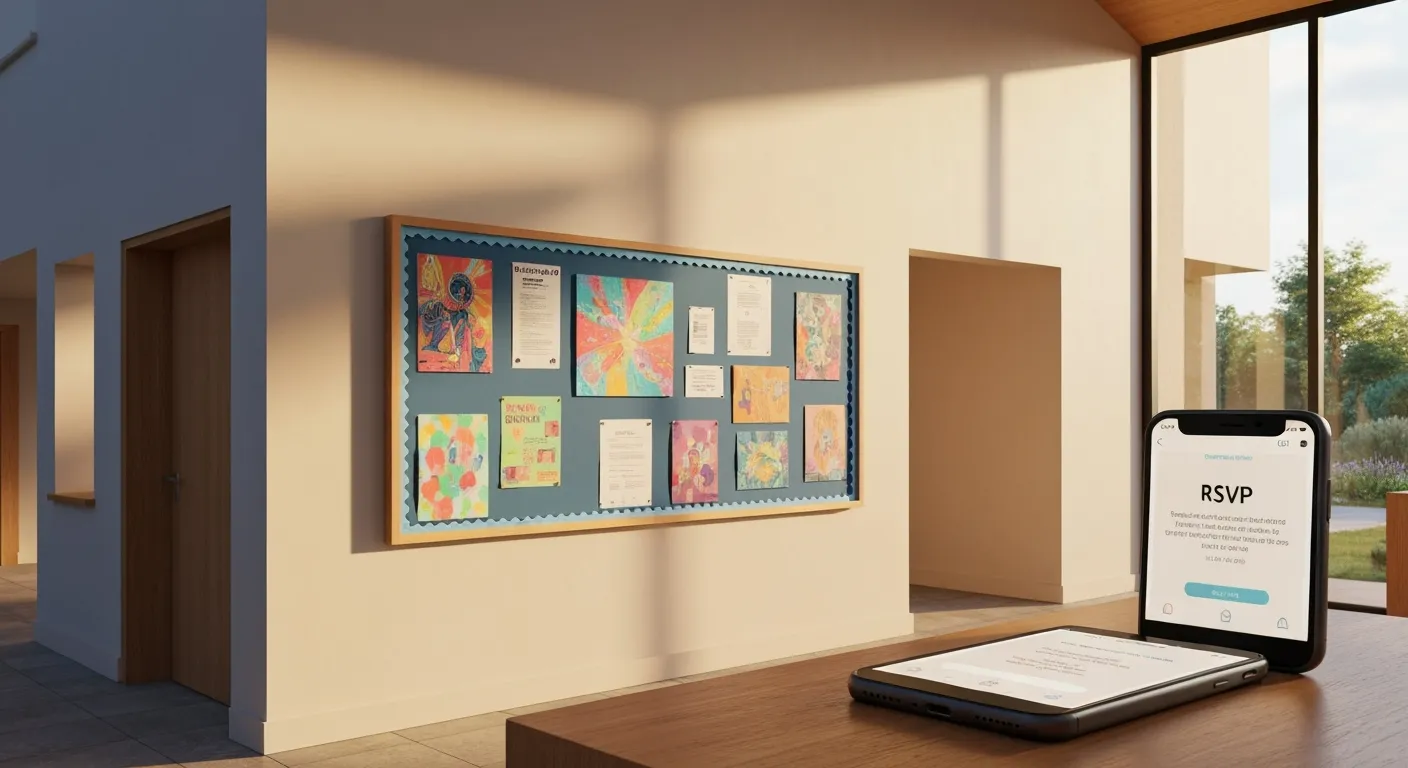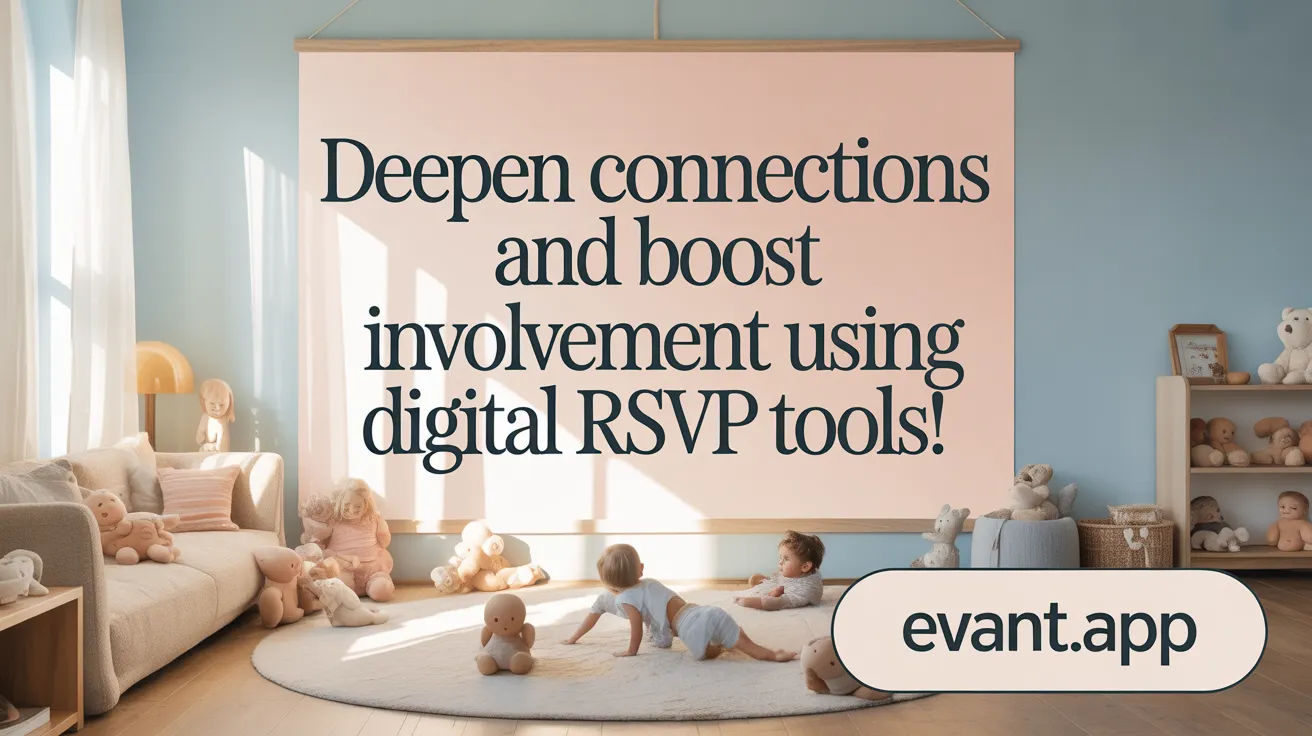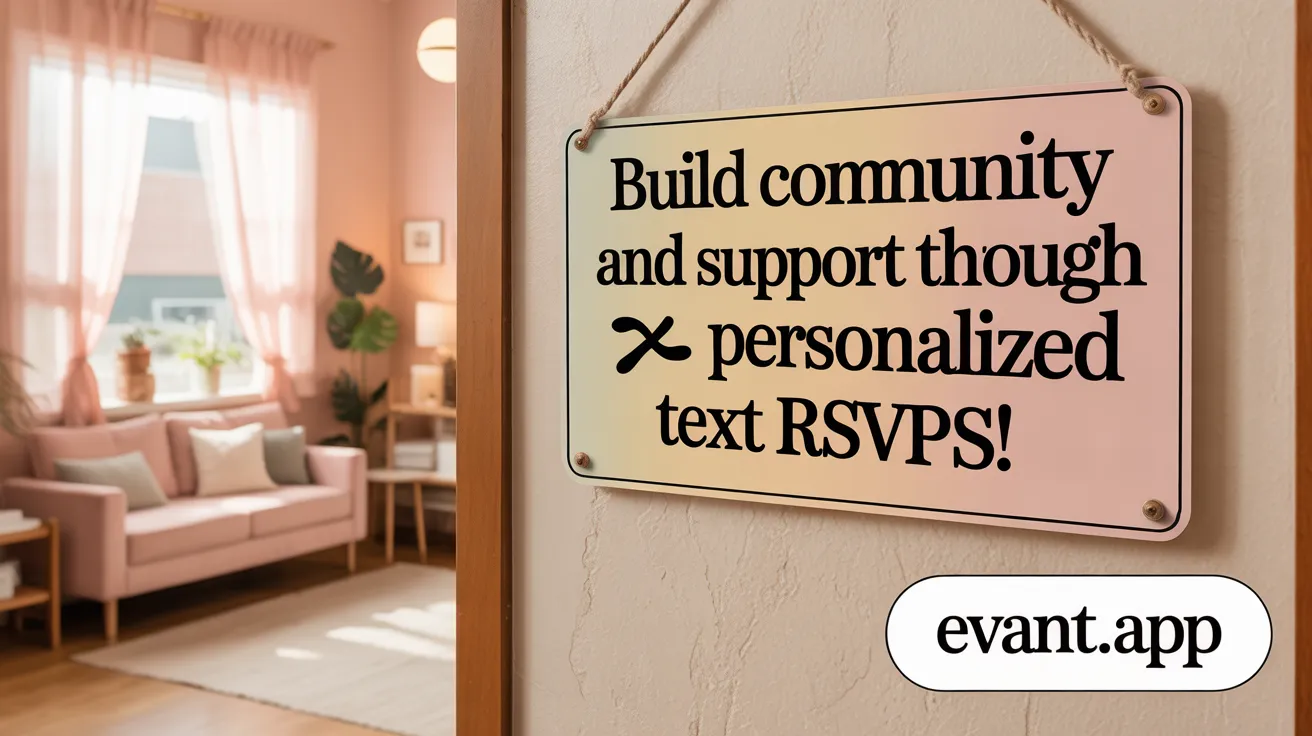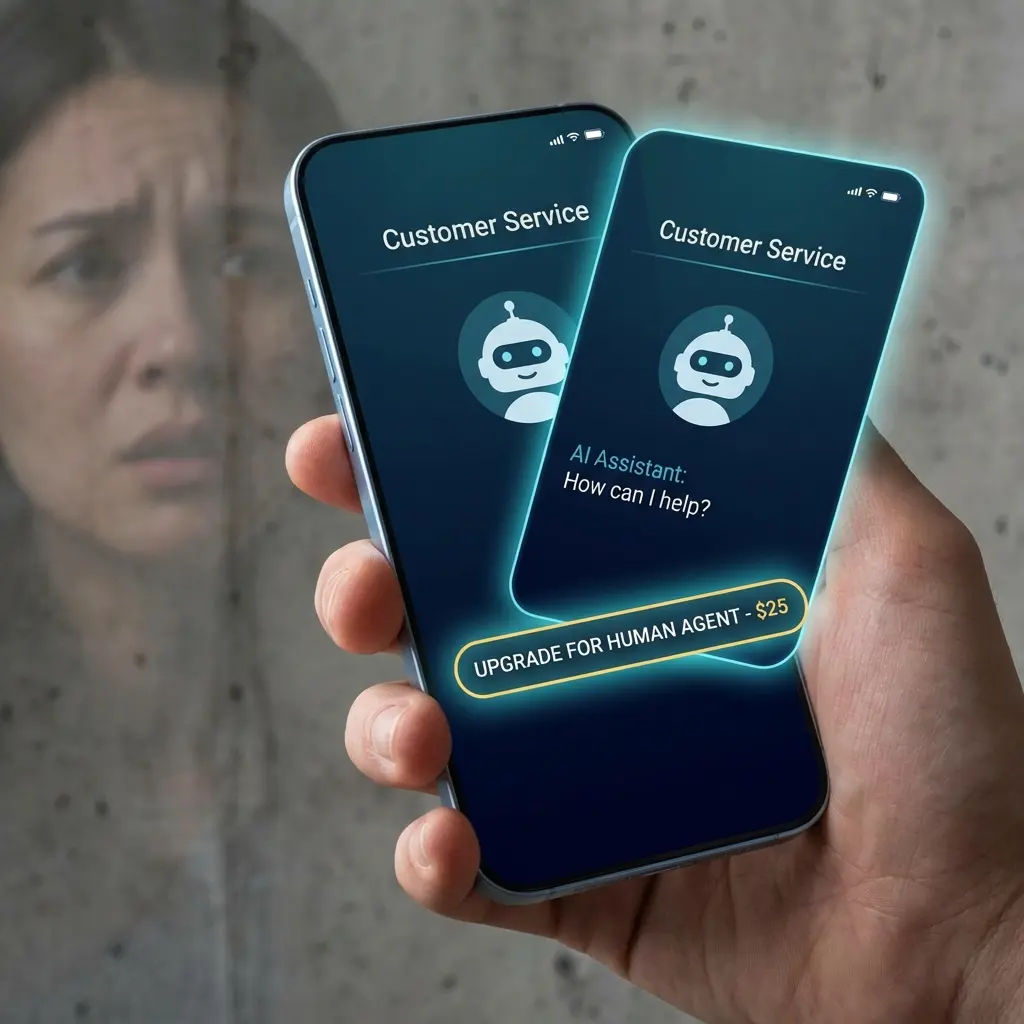How Religious and Nonprofit Leaders Can Strengthen Relationships With Text RSVPs

Building Stronger Bonds Through Modern Messaging
In today's fast-paced digital world, religious and nonprofit leaders face the ongoing challenge of effectively engaging supporters and community members. Text RSVPs, a simple yet powerful communication tool, offer a remarkable opportunity to enhance relationships, streamline event coordination, and foster community growth. This article explores strategies, best practices, and practical techniques to help organizations leverage text messaging and RSVP systems to deepen connections, increase participation, and maintain vibrant, loyal networks.
Strategic Use of Text RSVPs to Strengthen Supporter Relationships
How can religious and nonprofit leaders utilize text RSVPs to foster stronger relationships with supporters?
Engaging supporters effectively through text messaging involves capitalizing on the high open and response rates associated with this communication channel. Leaders should craft timely messages that are personalized, referencing past participation to make supporters feel recognized and valued.
Incorporating multimedia elements such as images and videos within texts can significantly improve engagement. Visual content helps convey organizational impact and creates a more compelling message.
To expand reach, organizations should promote RSVPs through various channels—including email, social media, and community networks—ensuring that messages are accessible to diverse supporter segments. Influential community members can also play a vital role in endorsing and encouraging participation.
Simplifying the RSVP process is crucial. Including clear, short links or QR codes directly in messages makes it easy for supporters to respond quickly. This ease of access reduces barriers to engagement and increases the likelihood of participation.
Follow-up communication is equally important. Sending personalized thank-you notes or additional information fosters trust and deepens the relationship. These ongoing interactions help supporters feel appreciated and more inclined to stay involved.
By integrating these strategies, religious and nonprofit leaders can build more meaningful supporter relationships, leading to increased engagement and support for their missions.
Best Practices for Faith-Based and Nonprofit Organizations Using Text Messaging and RSVPs

What best practices can faith-based and nonprofit organizations adopt to utilize text messaging and RSVPs for enhancing engagement?
To maximize the effectiveness of their communication, these organizations should focus on segmenting their supporter lists. This allows for tailored messaging that resonates personally, increasing the likelihood of positive response and ongoing engagement.
Keeping messages short and straightforward—ideally between 160 to 320 characters—is crucial. Clear calls-to-action (CTAs), such as RSVP buttons or donation prompts, guide supporters seamlessly to take desired steps.
Using timely reminders and confirmations helps support participation, whether it's attending an event or making a donation. For example, sending a reminder the day before an event or a thank-you message after can foster stronger relationships.
Harnessing RCS features enhances this approach significantly. Supporters can receive multimedia content like videos or images, interactive buttons for quick RSVP responses, and embedded donation links directly within messages.
It’s essential to include easy opt-out options in every message to respect supporter preferences and comply with legal regulations. Transparency about privacy policies also builds trust.
Tracking performance through analytics such as open rates, click-throughs, and response rates enables organizations to refine their messaging strategies. Continuous optimization helps maximize supporter engagement and campaign success.
By integrating these practices, faith-based and nonprofit groups can deepen supporter relationships, streamline participation processes, and ultimately foster a more active community while maintaining trust and legal compliance.
Improving Communication and Connection Through Text-Based RSVP Systems

How can text-based RSVP systems be used to improve communication and connection with supporters and congregants?
Text-based RSVP systems offer a practical and effective way for nonprofits and faith organizations to enhance their communication and foster stronger connections with supporters and congregants. These systems allow organizations to send out event invitations, reminders, and updates directly to supporters' mobile phones using SMS, ensuring high visibility and quick responses.
One major advantage of using SMS for RSVPs is the high open rate, which averages around 98%. This means supporters are almost certain to see the message promptly, typically within three minutes, increasing the likelihood of immediate engagement.
Two-way communication is another benefit. Supporters can easily reply to messages with questions, confirmations, or cancellations. This interactive aspect nurtures a more personal relationship and makes supporters feel valued and connected.
Personalized messaging plays a vital role in building trust. Addressing supporters by name, sharing tailored updates, and using local or recognizable numbers when sending messages can improve response rates and foster a sense of familiarity.
Automated reminders and feedback surveys are instrumental for smooth event planning. Send timely prompts to reduce no-shows and gather impressions after events, demonstrating organizations' attentiveness and commitment to continuous improvement.
Lastly, SMS RSVP systems facilitate a direct, personable dialogue that encourages ongoing engagement. Supporters appreciate quick, clear communication that respects their time and preferences, strengthening their connection to the organization.
By embracing these modern communication tools, nonprofits and faith groups can create seamless, responsive, and meaningful interactions that enhance support, participation, and overall community involvement.
Leveraging Digital RSVP Tools to Deepen Relationships and Boost Involvement
 Digital tools like text RSVP systems are transforming how nonprofits connect with supporters and manage events. They facilitate real-time, personalized communication, which helps organizations strengthen relationships by making supporters feel valued and engaged.
Digital tools like text RSVP systems are transforming how nonprofits connect with supporters and manage events. They facilitate real-time, personalized communication, which helps organizations strengthen relationships by making supporters feel valued and engaged.
Automation plays a crucial role in reducing administrative work. By streamlining the RSVP process, organizers can focus more on building personal connections rather than managing logistics. Automated reminders, follow-up messages, and guest management features ensure that supporters receive timely updates, improving their overall experience.
Guest management and analytics are additional benefits of digital RSVP platforms. These tools allow nonprofits to track attendee data, preferences, and behaviors, enabling more targeted and meaningful interactions in future communications and events.
The convenience of digital RSVPs encourages quick responses. High open rates for text messages—up to 98%—and fast acknowledgment times help keep supporters engaged, particularly for last-minute or casual events.
Furthermore, tailored interactions through personalized messaging foster emotional bonds. When supporters see communication addressed to them and aligned with their interests, their sense of connection and commitment to the organization deepens.
In summary, leveraging digital RSVP tools creates a seamless, efficient, and personalized experience. This approach not only simplifies event management but also builds stronger relationships, fosters ongoing support, and increases involvement with the nonprofit.
Communication Techniques Using Text RSVPs That Build Trust and Loyalty
What effective communication techniques using text RSVPs foster trust, loyalty, and community growth?
Using text RSVPs as a communication tool can significantly strengthen relationships within a community. One effective approach is to send timely and personalized acknowledgment messages immediately after receiving a guest's RSVP. A simple thank-you note that recognizes their response demonstrates appreciation and attentiveness, which helps establish trust.
In addition to basic confirmation, sharing brief stories or updates related to the upcoming event can deepen emotional bonds. For example, a nonprofit organizing a community rally might include a short success story from previous gatherings, inspiring supporters and reinforcing shared goals.
Incorporating multimedia elements, such as images or short videos, into reminders or invitations makes messages more engaging. Visual content can convey enthusiasm, showcase event highlights, and demonstrate the organization's effort and dedication. This extra layer of effort often translates into increased loyalty and ongoing support.
Transparency is crucial for building long-term trust. Consistently providing updates about the event, sharing logistical details, or explaining any changes reassures supporters and respects their time and commitment. Additionally, accommodating preferences—such as offering opt-in and opt-out options, greeting supporters by name, and respecting communication frequency—signals respect for individual choices and enhances community cohesion.
Finally, maintaining prompt and friendly responses to any questions or modifications fosters a sense of reliability and openness. When supporters feel heard and valued, their loyalty grows, and they are more likely to participate actively in future events. Overall, combining personalization, storytelling, multimedia use, transparency, and prompt communication creates a trustworthy environment that nurtures loyalty and spurs community development.
Text RSVPs for Relationship Maintenance, Community Engagement, and Outreach

How can nonprofit and religious leaders utilize text RSVPs for relationship maintenance, community engagement, and organizational outreach?
Nonprofit and religious organizations are increasingly turning to text messaging as an effective tool for event planning and community building. Using text RSVPs helps streamline the process of gathering attendee information, making it faster and more convenient. Supporters can respond to invitations with simple keywords or codes, which are then automatically registered and integrated into event management platforms such as Eventtia. This seamless connection ensures organizers have real-time updates and can plan accordingly.
Personalizing messages plays a vital role in strengthening relationships. By including supporters’ names and clear calls-to-action within the invitation, organizations foster a sense of connection and encourage active participation. When supporters feel personally engaged, they are more likely to attend events and become long-term members.
In addition, messaging apps like WhatsApp, Signal, or Facebook Messenger facilitate two-way communication. Supporters can ask questions, provide feedback, or receive instant updates, creating a dialogue that nurtures trust and community spirit. This dynamic interaction enhances engagement and demonstrates organizational transparency.
Group texting is another valuable approach. It allows leaders to send targeted updates or reminders to specific supporter groups, such as volunteers or special interest groups. This targeted communication helps coordinate events efficiently and builds a sense of belonging among community members.
Practicing ethical engagement is essential. Leaders should obtain prior consent from supporters before sending messages and always respect opt-out requests. This not only complies with legal standards but also builds trust, showing supporters that their preferences are valued.
By integrating these practices, nonprofit and religious leaders can leverage text RSVPs and messaging platforms to maintain strong relationships, foster community involvement, and extend their outreach efforts effectively.
Optimizing Text Messaging and RSVP Strategies to Strengthen Stakeholder Networks
What tips optimize text messaging strategies, including RSVPs, to strengthen stakeholder relationships and support networks?
Effective text messaging is a powerful tool for nonprofits and faith-based organizations aiming to deepen engagement and rally support. Personalization plays a crucial role; by addressing supporters by name and customizing content based on their interests or past interactions, organizations can foster meaningful connections.
Keeping messages concise—ideally within 160 characters—ensures clarity and readability. A clear call-to-action (CTA) paired with relevant links directs supporters toward desired actions, such as RSVPing for an event or making a donation. Timing also matters; sending messages during optimal periods, like midday or early evening, increases the likelihood of engagement.
Segmenting the audience based on engagement levels, location, or demographics allows for tailored messaging that resonates more effectively. Including multimedia elements, such as images or GIFs, can catch attention and enhance message impact. Automation tools help send timely reminders, updates, and feedback requests, maintaining a continuous and organized communication flow.
To ensure ongoing trust and legal compliance, organizations must offer opt-out options in every message. Tracking campaign metrics and analyzing response patterns help refine strategies over time, making each outreach more targeted and effective. When used thoughtfully, optimized text messaging builds stronger stakeholder relationships and supports network growth.
Research Insights on Text RSVPs in Building Faith-Based and Nonprofit Partnerships
How do text RSVPs help improve coordinated event participation?
Research shows that using text message RSVPs significantly boosts event participation by making the registration process quick and simple. Supporters and community members can respond instantly, which helps organizations plan logistics and ensure more people are involved. This immediacy leads to higher turnout rates and more reliable attendance data.
In what ways do text RSVPs support ongoing collaboration and engagement?
Digital RSVP systems support continuous communication by maintaining open channels between organizations and participants. Automated reminders and follow-up messages encourage supporters to stay involved with upcoming activities or updates, fostering stronger long-term relationships.
What role do text RSVPs play in public health and culturally sensitive outreach?
In public health campaigns, especially among diverse or faith-based communities, text RSVPs prove effective for sharing vital information and gaining community trust. When combined with culturally appropriate messaging and involvement of faith leaders, these tools improve participation rates in health initiatives like vaccination drives, ensuring messages resonate and are embraced.
How does faith leader involvement influence trust and effectiveness?
Engaging faith leaders in promotion and communication efforts enhances the credibility and reach of outreach programs. Their endorsement of messages sent through text RSVPs increases trust among community members and encourages participation in faith-based and health initiatives.
What impact does the use of digital RSVP systems have on promoting equity and partnership success?
Digital RSVP tools help reduce barriers to participation, making event registration accessible to diverse populations, including those with limited mobility or access issues. This inclusivity promotes equity, ensuring broader community involvement and strengthening the sustainability and effectiveness of faith-based partnerships.
| Application Area | Benefits | Supporting Evidence |
|---|---|---|
| Event Participation | Higher engagement rates | Increased attendance through simple SMS responses |
| Ongoing Engagement | Maintains supporter interest | Automated reminders and follow-ups |
| Cultural Sensitivity | Builds trust in diverse communities | Culturally tailored messaging with faith leader support |
| Equity & Inclusion | Broader supporter access | Reduced participation barriers |
| Partnership Effectiveness | Strengthening long-term collaborations | Facilitates communication and trust building |
This approach underscores the importance of integrating text RSVPs into nonprofit and faith-based outreach, advancing both community participation and trust.
Practical Advice to Improve Supporter Retention and Participation Through Text RSVPs
What practical advice helps improve supporter retention, participation, and overall relationship quality through text RSVPs?
Nonprofits can strengthen supporter bonds and increase participation by using personalized and strategic text messaging. Addressing supporters by their names and referencing their previous support or interests makes the communication feel more genuine and appreciative.
Timing is vital. Sending targeted reminders close to event dates at optimal times ensures supporters are reminded without feeling overwhelmed. After events or interactions, promptly acknowledging responses and expressing gratitude fosters a sense of appreciation and encourages ongoing engagement.
Encouraging two-way responses transforms passive recipients into active participants. By inviting supporters to reply and share feedback, nonprofits gain valuable insights and deepen relationships.
Segmentation further enhances communication relevance. Organizing contacts by donation history, location, interests, or engagement level allows tailored messaging that truly resonates, increasing the likelihood of continued support.
Integrating SMS efforts within a comprehensive CRM system helps organizations monitor engagement metrics, personalize future messages, and refine strategies based on supporter behaviors. This data-driven approach ensures ongoing improvement.
Adopting these practices in text RSVP campaigns not only boosts participation but also builds trust and long-term loyalty with supporters, ultimately advancing the nonprofit’s mission.
Techniques for Using Text RSVP Systems to Communicate and Coordinate Within Organizations
Using text RSVP systems effectively can significantly enhance communication and coordination within organizations. One of the most effective strategies is integrating RSVP data directly with existing communication platforms and event management tools. This allows organizations to share real-time updates, manage attendee lists efficiently, and coordinate logistical details seamlessly.
Personalized and templated messages that include clear calls-to-action (CTAs) are crucial. These messages can be tailored to specific audiences or event types, encouraging recipients to respond promptly. Incorporating multimedia elements, such as images or videos, can also boost engagement.
Automation plays a vital role in maintaining smooth communication. Sending timely follow-ups, reminders, and last-minute confirmations helps target those who haven't responded yet, ensuring more accurate headcounts and reducing last-minute surprises. Automated reminders can be scheduled to go out to non-responders, increasing the likelihood of participation.
Segmentation is another key technique. By dividing contacts into groups based on involvement levels or specific event interests, organizations can craft more relevant messages. For example, corporate partners might receive invitations for professional events, while community members get updates about local gatherings.
In addition, utilizing digital tools like QR codes and contactless check-in options simplifies participation. Attendees can scan QR codes to RSVP or check in, streamlining the process and reducing paper waste, making the entire communication eco-friendlier.
Overall, integrating these methods creates a more efficient, personalized, and environmentally conscious communication environment. It not only improves event participation but also strengthens internal relationships and support networks, fostering a cohesive organizational culture.
Emerging Innovations: RCS Messaging and Its Impact on Nonprofits and Faith Groups
Introduction to Rich Communication Services (RCS)
Rich Communication Services, commonly known as RCS, is a new messaging protocol built by Google and supported by the Global System for Mobile Communications Association (GSMA) and mobile carriers worldwide. It represents a significant evolution from traditional SMS, offering richer and more interactive communication options.
Advantages over traditional SMS
Unlike basic text messages, RCS allows nonprofits and faith organizations to send multimedia content like videos and high-resolution pictures. It also supports interactive features such as buttons for quick responses and seamless links, making communication more engaging and effective.
Enhanced engagement features (videos, images, buttons)
RCS's standout feature is its ability to incorporate rich media directly into messages. Supporters can view impact stories through videos, share detailed images, and interact via embedded buttons for actions like donations, RSVPs, or survey participation. These features foster deeper supporter involvement.
Four levels of RCS capabilities
There are four progressive levels of RCS: Basic RCS, Single-content RCS, Conversational RCS, and RCS business messaging. Each level adds more features, from simple messaging to comprehensive business solutions, enabling organizations to tailor their communication based on needs and readiness.
Registration requirements and rollout timeline
Organizations interested in using RCS must register their brand details, include their logo, display name, opt-in/out plans, and provide a fallback link. The full rollout of RCS messaging in the U.S. is expected in the first quarter of 2026. Nonprofits are encouraged to start registering early to ensure they are prepared.
Implications for fundraising, event promotion, and two-way chatbots
RCS offers powerful tools for nonprofits and faith groups. Fundraising campaigns can leverage rich media and call-to-action buttons to increase donation conversions, sometimes experiencing over 50% growth. Event promotions can benefit from location sharing, RSVP options, and calendar integration. Additionally, two-way chatbots facilitate real-time engagement, support supporter inquiries, and reduce communication costs, transforming how organizations connect with their communities.
Maximizing Relationships and Impact with Text RSVPs
Text RSVPs represent a transformative tool that religious and nonprofit leaders can harness to build trust, deepen engagement, and enhance organizational outreach. By adopting best practices such as personalized messaging, leveraging advanced digital features like RCS, and ensuring ethical, timely communication, organizations can foster stronger community bonds and streamline event management. As mobile technology evolves, integrating text RSVP systems into broader communication strategies will be essential for maintaining vibrant supporter networks, promoting participation, and achieving mission-driven goals more effectively than ever before.
References
- How RCS Can Elevate Nonprofits' Text Messaging
- 5 Ways Your Church Can Use Text Messaging to Reach More People
- Best Text to Give Platforms for Nonprofits 2025 - Funraise
- Why Your Nonprofit Should Consider Text Messages - GiveSmart
- Nonprofit Text Messaging: How to Reach Your Audience - Tatango
- Public relations strategies in religious organizations: a qualitative ...
- Building Lasting Donor Relationships One Text at a Time
Related Blogs


How Community Churches Should Leverage SMS to Boost Engagement
Michael PedoeemStruggling with low church attendance? Discover how to leverage SMS to reach 98% of your congregation instantly and review the top 5 church communication platforms.


SMS for Churches: A Guide to Better Engagement
Michael PedoeemLearn how SMS for churches can boost engagement, improve communication, and streamline event management. Discover best practices for church texting today.
Ready to transform your community









